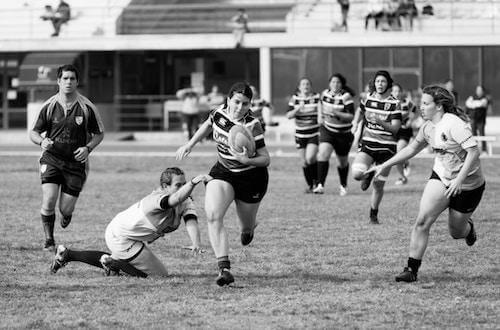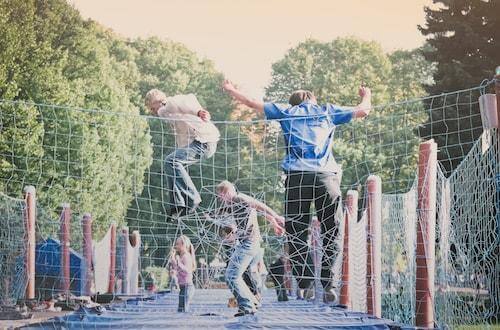Eating healthy and regular exercise is one of the most important parts of every age group’s life. However, it’s even more important to teenagers. Regular exercises can support in maintaining their physical and mental health. Also, it helps to build a stronger and healthier immune system. The rapid increase of sedentary behaviours in teenagers has resulted in an exponential rise of sitting diseases, obesity to diabetes. Therefore, if teenagers can discover physical activities they enjoy, they are more likely to exercise on a regular basis and continue exercising into adulthood.
Playing Sports
There are so many types of sports that are out there for your children to participate in, below are some examples that are popular amongst teenagers.
- Football
- Basketball
- Swim team
- Volleyball
- Badminton
- Tennis
- Gymnastics
Professionals such as teenage counsellors, physicians or personal education teachers recommended that playing a team sport teaches teenagers many valuable life skills including leadership, the value of teamwork and cooperation. Athletic teens also learn how to handle stress and pressure, set goals and work hard to reach a goal. Playing a sport allows teenagers to build relationships with their coaches and peers. These experiences will help teenagers learn how to work with others as well as become easy to work with later in life, whether it’s at home, at school or on the job.

Emotional Benefit of teenage exercise
Friendship
Playing sports enables you to create friendships you otherwise might not have formed. Sports bring teens together from different schools, backgrounds, and communities. Many times, the friendships you create on the field remain intact even when you are not playing sports.
Family
The fans on the sidelines are one of the most important parts of the game. The constant support of your parents helps you to feel good about yourself and strengthens your connection to them. As a teen, it is not always easy to find time to spend time with your parents. Sport gives you and your parents time to appreciate one another.
School
It’s a common misconception that being both a student and an athlete is hard, if not impossible. Participating in sports can have a positive impact on the school. Sport forces you to organise your time so that you can both go to practice and finish your homework. The key is finding a balance. If you can learn to organise your time, then you can succeed in both.

Physical Benefit
Physical development
Children who participate in sports develop stronger muscles and bones, and the stronger you are, the less likely you will suffer from physical injury. A New Zealand study conducted in 2006 suggested participating in physical exercise before and during the onset of puberty helps reach peak bone mass, enabling them to develop stronger muscles and bones that will be the foundation for future growth.
Aids in weight control
Several studies have shown that childhood obesity is a growing problem in our society. Playing sports, however, will keep children active and aid in the fight in combating this problem. Having a controlled weight leads to happier children and decreases the risk of diseases that come from being overweight in their lifetimes, such as heart disease and diabetes.
Improves endurance
Participating in sports improves cardiovascular endurance. Increased cardiovascular health decreases the risk for heart disease which is the number one killer disease claiming almost 800,000 lives in 2011, according to the CDC. Having an increased endurance allows athletes to reach their full potential in sports but most importantly, will keep their heart-healthy.








Very interesting topic! I’ll have to try these tactics out on my children…